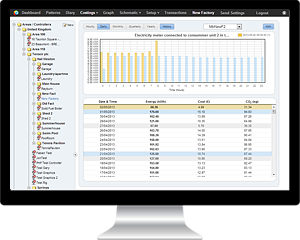Despite ambitious carbon emissions cuts plans, the UK still lacks the necessary policies

Draft legislation laid before parliament recently would set the UK’s fifth carbon budget at a 57% emissions cut by 2028-2032, compared to 1990 levels, but the policies that would enable the country to actually achieve these savings are not in place, a recent news report has been able to suggest.
Without significant new policy interventions, however, the UK will achieve at most half of the reductions needed between now and 2030, according to the 2016 progress report from the Committee on Climate Change (CCC).
The draft Carbon Budget Order 2016 would set the fifth carbon budget at 1.725 million tonnes of CO2 equivalent (MtCO2e), or 57% below 1990 levels. This is in line with the CCC’s advice, although it excludes the UK’s share of international shipping emissions.
The fifth carbon budget will bring net benefits worth an estimated £5.5bn to the UK in present value terms, according to an impact assessment also published today. This includes costs of around £36bn, largely related to cost in sectors such as transport and buildings.
The budget would bring benefits worth around £41bn in present value terms, the impact assessment says. This is made up of reduced costs from lower energy use of £24bn and avoided climate impacts of £16bn.
In annual terms, the costs would be an estimated £12bn, with benefits worth £13bn.
HeatingSave – delivering impressive energy savings at a very low initial cost
Energy management systems might represent a sizeable investment for any company, but the rapidly rising energy prices can actually deliver a very rapid return on investment, experts in the field have argued.
A recent paper on this topic has argued that over half of firms have appointed a senior director to manage energy spending and implement energy efficiency measures.
The range of energy saving programmes directors can vary largely, depending on the available funding, the company’s size, premises, site specifics.
However, regardless of the particular approach, directors who are serious about slashing their energy bills will need to consider retrofitting their premises in some way, whether we’re talking about putting in renewable energy measures or more complex Building Energy Management Systems.
An energy management and monitoring system can help companies stay on top of their energy usage and reduce their overall bills by running their light/heating systems in an optimum manner.
If you’d like to find out just how easy it is for your company to cut carbon emissions and save in excess of 30% on your energy bills, then contact us, and we’ll be more than happy to provide you all the necessary information.






